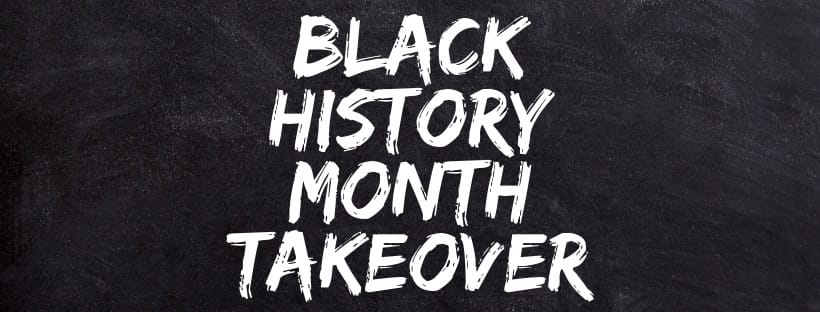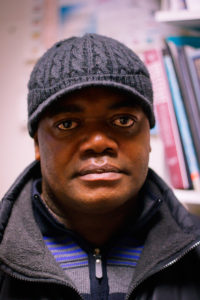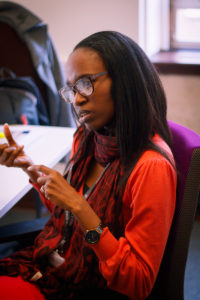HUMANS OF SOAS: Black History Month Special

For Black History Month, The SOAS Spirit interviewed black professors on campus. We discuss BME underrepresentation in academia, personal backgrounds, and how Black History should be taught.
 DR KWADWO OSEI NYAME, Jnr
DR KWADWO OSEI NYAME, Jnr
We’re going to talk about Black History Month a little bit, with the focus on your experience as a BME professor, academic, and just in general moving to England – your experiences here, and experience from your home country.
I am Ghanaian by birth. I like to think of myself as a representative for the race, the people of Africa and also of the diaspora. I am always outspoken. I am not here to live up to anyone’s expectations. I am here to do what’s good for myself, my community and for the world generally.
What is your opinion on Black History Month?
Black History Month is cool in that it allows people everywhere to celebrate and commemorate people of African descent, especially in relation to their history. But recently I have felt that Black History Month is a bit of a token.
How is Black History taught at SOAS?
I teach Black History throughout the year. It is very different teaching a topic from something that is of your perspective, rather than theorising from some else’s perspective. We should not presume that because SOAS teaches History or African History, that it is decolonised. That is not the issue. It is about the content, not the name. Saying we teach non-european subjects in not enough. If you look at SOAS, you will find that in many areas, it falls well below par. There needs to be a revolution of the mind worldwide globally.
Why are BME academics so underrepresented?
It is a general problem in the UK. If the society has always, in all its behaviour, marginalised black people and those of other descent, it will reflect in every sector. There are a lot of people who are qualified and overqualified, but they will not get the job because of their name or how they look.
 DR SERAPHIM KAMDEM
DR SERAPHIM KAMDEM
What is your personal background?
I am not UK born, that is something I’m very proud of, not in some sort of exclusive way – it’s just part of my identity. I really insist on my vision that becoming British is adding to my identity, it’s adding another layer of who I am, it enriches me for the better, for the better of British society and also for the better of where I come from. Some people may see it differently, but that’s the individual story is so important when you are dealing with issues of who are we during something like Black History Month.
Your thoughts on Black History Month?
When you say BHM, somehow there is a racial element in there. It doesn’t necessarily fully capture some of the stories of people who are put into that box of being minorities, in modern British society – which is coming more and more diverse. It is not just becoming that, it was always diverse, it’s just that the angle from which British society was seen was really varied from the beginning.
[Black British History] has to do of course, in my own case with colonisation, the slave trade is some of it but Cameroon, where I come from, as a political entity is a result of the agenda of the British empire. So, for the people like me, we grew up in an environment where the presence of the British empire was there, imposed onto us. The education that I got was the product of the British presence in Africa.
We are not the products of a good system, we are the products of a bad system because we are a minority out of a system which should produce a majority that has basic education. It [should] never [be] about language. It’s about the transmission of knowledge, values, know-how and subsistence – that’s what education is ultimately about.
 DR OLIVIA LWABUKUNA
DR OLIVIA LWABUKUNA
Introduce yourself.
My name is Olivia Lwabukuna. I usually don’t use the “Doctor”, it makes me feel uncomfortable, and I’m a Law Lecturer at SOAS. I teach mostly aspects of International Law and the legal systems of Asia and Africa. That’s what my interest is but that’s what I also teach: Law within the African context. I was born in Tanzania but I grew up in Swaziland, and later relocated to South Africa. So the three are actually home to me. Tanzanian by birth, except I didn’t live there. I moved to England two years ago, so I am still reasserting myself.
What are your thoughts on BHM?
I actually feel, despite the criticism, it’s obviously a good thing for POC, for minorities, for BME people within Africa and beyond it. In the UK, [it’s good] to feel some form of recognition, even though there are aspects of tokenism and feeling that we should not be recognised for just one month a year, but it should be something that filters through every day and in every aspect of our lives – just like other people. But as a system, I feel retrospective information doesn’t work like that. The fact that we get one month a year where we are celebrated, for me it’s a good thing. At least the students and other people, who are a black minority, either at SOAS or within the larger UK, feel like it is a space and time for them, where they actually get recognised. For me, at least it happens. Affirmative action or responses to this, whether it’s recognition for certain groups or anything of that sort, require measures like this.
Career talk – do you consider yourself successful?
I actually don’t consider myself successful. I consider myself where somebody who has done the things that I have done should be. Except there are few people like me. My representation might be that of success among people of my kind, but I do feel that if I wasn’t my kind then I probably would just be average and normal, and it would not make it look like a success.
But I do consider myself responsible, because of where I’m placed, to make the best representation of who I am and what my kind is. Because there aren’t many people like me, it comes with sometimes burdens, but also pressure. Added pressure to be your best, to do the best. To do more than everybody around you does, because you obviously stand out the most whether you do something amazing or something that is not. There is that added pressure that I always take into account. Because you are a minority you probably always feel that you are noted on every aspect, so you want that note to be a good one. I just think it’s unfortunate that there aren’t a lot of people like me.
What difficulties do you face as a minority in your career?
Always the fact that you don’t have peers from the same background or your context. There are certain discussions, especially personal ones or challenges that your peers might not necessarily understand or comprehend. It’s not what you’ve done or the studies you’ve undertaken or the research you’ve done, it’s the context in which you’re doing it. You don’t have peers of your kind to share it with, to share your challenges with. Yes, you have friends, and people who are at the same level as you – therefore you can engage with them at that level, but at a personal level, you always have that challenge. You find yourself always in a small hole. It sometimes can get lonely, if I put it that way, and also because you seem unique, you’re always looked at as another creature.
“I like the struggle the English have pronouncing my name and me insisting I want it pronounced the full, complete name. Sometimes it even takes a while for you to be comfortable with your name, your face and your appearance, and everything else. I’m at a point where I’m comfortable with the difference and the struggle it brings.”
INTERVIEWED BY SYRAT BUTT
PHOTOGRAPHS BY AISHAT SERIKI
Humans of SOAS is a photo-series and collection of interviews, showcasing the diversity of talent and stories around SOAS. If you would like to nominate anyone, or would like to be featured in our series, email spirit@soas.ac.uk




